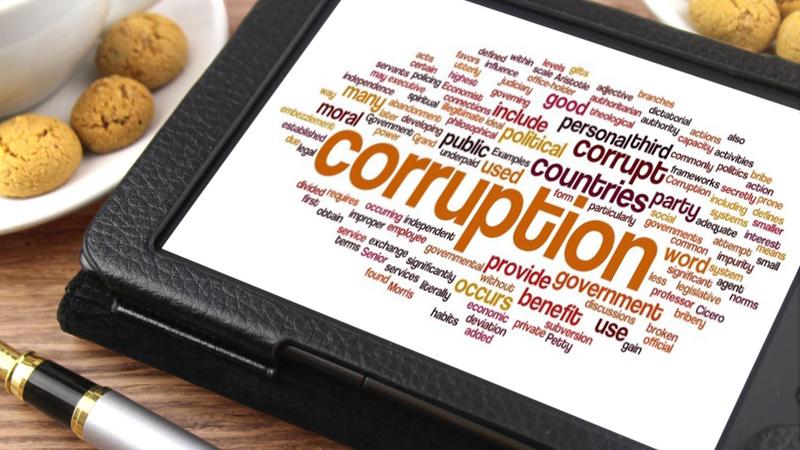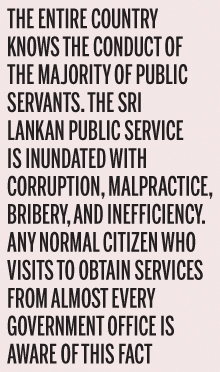
At a time when the country is at a dire crisis point, displaying the blatancy of Sri Lankan politics perhaps more than many previous times, the purported joint Opposition alliance exhibited to the whole nation how opportunistic, self-centred, and unashamed they are. The agreements between political parties, trade unions, and NGOs were shattered in a clear display of power hunger and not for the sake of the general public.
The ugly in-fighting exposed the true intentions of the leaders of the so-called saviours of the nation. Hence, it is no surprise that the entire campaign became a shameful flop.
Any neutral observer can witness that there is an improvement in the extremely dire situation that prevailed over the past six months. The country is slowly coming out of the awful scarcity of fuel, LP gas, fertiliser, milk food, long power cuts, and shortages of many other essential commodities.
Only hypocrites can say that the present Government under President Ranil Wickremesinghe has not made amendments, although they may not be the best.
Even though there are justifiable criticisms against the incumbent president’s political conduct, it is evident that he has inculcated a positive sense of hope for the country through some of his recent exploits. Obviously, the decisions the new Government has taken during the past couple of months have evinced good results. This does not mean that everything is rosy, yet it is a definite recuperation.
Public demonstrations
Protests and public demonstrations have always been an effective way to show the political hierarchy that the public is not always satisfied with their decisions.
 This was the practice in the country for the past several decades. Public demonstrations, regardless of successes or failures, were popular in the past and will play an important role in the future as well.
This was the practice in the country for the past several decades. Public demonstrations, regardless of successes or failures, were popular in the past and will play an important role in the future as well.
Yet, this time around, in a clear demonstration of political egotism, political parties that participated in last week’s demonstration proved that the ever-popular “country before self” is a blatant lie. Media reports amply displayed the obvious self-centeredness among the political parties despite the immense amount of individual publicity each of them gained prior to the demonstrations. Each one of the parties wanted more votes at the next election, not relief for the public.
The pertinent question is whether street protests bring in the desired results to the core demand or if they are merely obstructing the snail’s pace recovery of the prevailing economic crisis. None of the recent protest campaigns clearly displayed the core intention of such activity.
The publicised theme that stated the protest is against the proposed anti-terrorism bill and State oppression was an ambiguous cover story according to most unbiased observers. Notably, most of the party leaders have not openly opposed the bills on terrorism prevention previously. This clearly indicates political opportunism and the devious intentions of these so-called leaders.
It is an open secret that the vast majority of participants in protests, strikes, and other trade union actions are Government servants. Usually, the protesters are mainly university students who largely belong to the Inter University Students Federation (IUSF), controlled by the Frontline Socialist Party (FLSP).
The entire country knows the conduct of the majority of public servants. The Sri Lankan public service is inundated with corruption, malpractice, bribery, and inefficiency. Any normal citizen who visits to obtain services from almost every Government office is aware of this fact
Recent media reports revealed that public servants collect billions of rupees in overtime payments and many other perks on the sly, even when their respective institutions are making colossal losses.
For example, the Ceylon Electricity Board workers obtained a staggering 3.2 billion rupees as allowances in 2020, according to Government sources. A similar story was reported recently about the Railways Department workers, where billions have been paid in overtime. Most of the known trade unions, such as petroleum, electricity, and railways that openly participate in the protests belong to this category.
On the other hand, university students who receive higher education on taxpayers’ money not only waste public funds but also disrupt growth instead of offering their contribution to the country’s recovery.
Apart from the popular slogans, they do not seem to have any clear purpose or intention. These youngsters are completely aware that their manipulators, who instigate such disruptive action, will never come into power, democratically or otherwise.
Also, they are aware that their party or its leaders have no plan for the development of the country. Simply put, they are a misguided and brainwashed group of people who do not possess any intention or personal need to contribute to the future of the country. Their sole task is to disrupt any government that comes into power and destroy all development plans.
General public
Instead of helping the country recover from the crisis, some religious leaders incite the general public to rise up against a democratically elected Parliament. They make derogatory and provocative statements against the Government time and again to provoke the public, often on issues that are not even relevant to them. These so-called religious leaders ignore the fact that by infuriating the general public, they knowingly or unknowingly obstruct the slow recovery from the current crisis.
One such religious leader has already complained, in writing, as he has done many times before, to the UN Human Rights Council about imaginary Government oppression even when visibly there is no such hardline action taken by the authorities. Similar to any elected Government in the world, they take stern action to maintain law and order.
Political hypocrisy is not uncommon in liberal democracies and is accepted by societies to a certain extent. Yet, in Sri Lanka, it has risen to the highest and most damaging levels during the past decade. Niccolò Machiavelli, one of the most highly regarded political theorists of all time, even argued in favour of political hypocrisy in his 16th-century book, “The Prince.” Had he been alive today, he would have taken Sri Lankan politicians as a fine example.
In Sri Lanka, politicians completely disregard potential damage to the country as a whole as long as it helps their political agendas. For example, Sri Lankans are perhaps the only nation that runs to the United Nations to complain about its own country on domestic issues. Not only politicians, but even the clergy resort to such action on even petty domestic issues, ignoring the possible long-term negative effects.
Is this not the time to promote harmony? Every unbiased Sri Lankan unanimously agrees to have a consensus for the sake of the country, except for a few who have been brainwashed by an orphaned political stream that dreams of grabbing ruling power through revolution. At a time when there are clear signs of recovery in many spheres, particularly tourism and exports, the mutual understanding of every citizen in the country is direly needed.
The actions of a few who resort to vandalism must not affect the overall effort. As this writer keeps stating repeatedly, the government’s media machinery is weak in communication when responding to misinformation and disinformation spread by dubious elements.
Business chambers
Several important business chambers and travel associations that directly and indirectly represent the majority of the private sector workforce that provides the largest contribution to the national GDP have recently made a statement expressing concern over the continuing protests.
Although the statement was specifically issued over the protests on November 2, the message meant the overall country situation. They were abundantly clear that these political actions can undermine efforts to resolve current issues with the help of the international community.
The protesting factions, mostly consisting of Government servants, must understand that a substantial portion of the Government revenue that pays their salaries and all other perks is coming from private sector contributions and indirect taxes from their own countrymen.
Similarly, the protesting political parties must realise, as their sole intention is to grab the governing powers that the private sector is an integral part of their political future as well.
